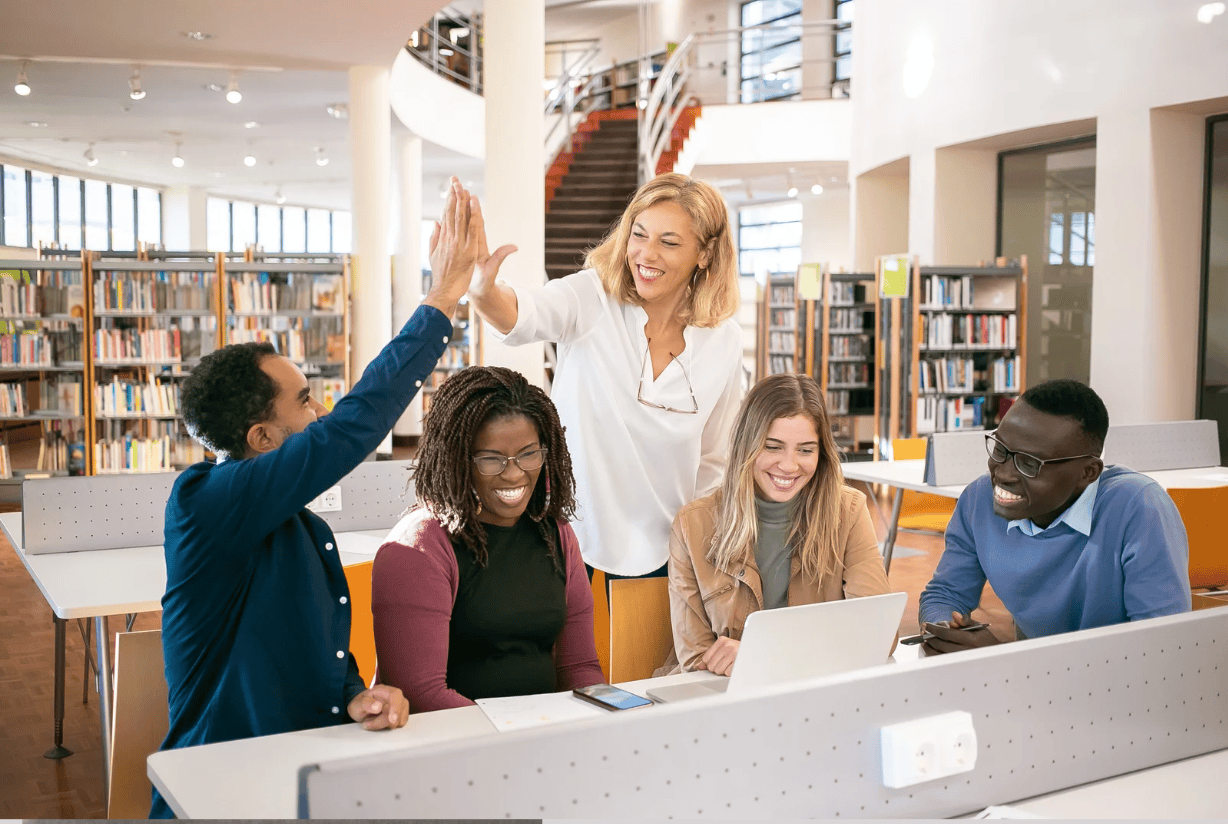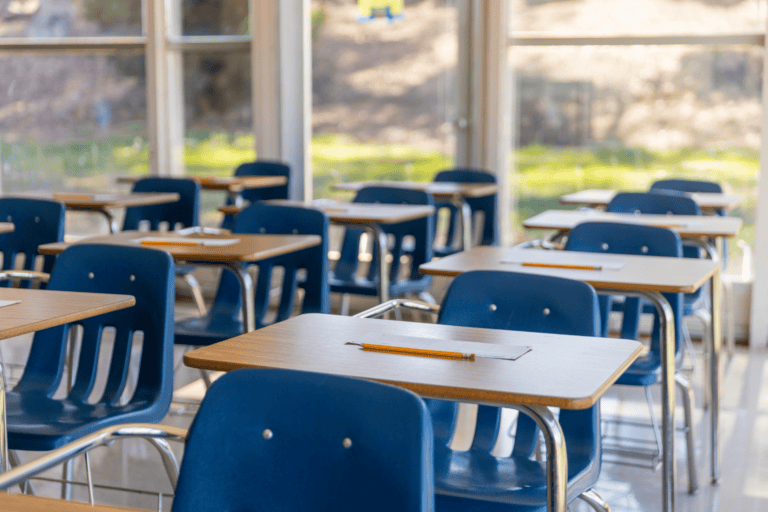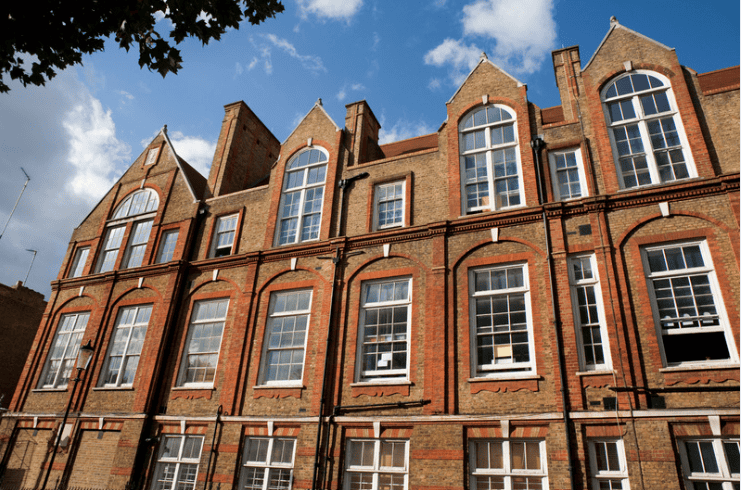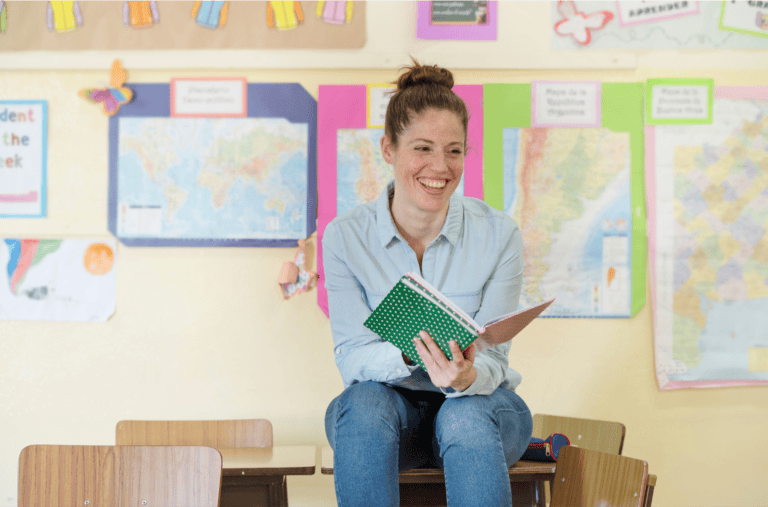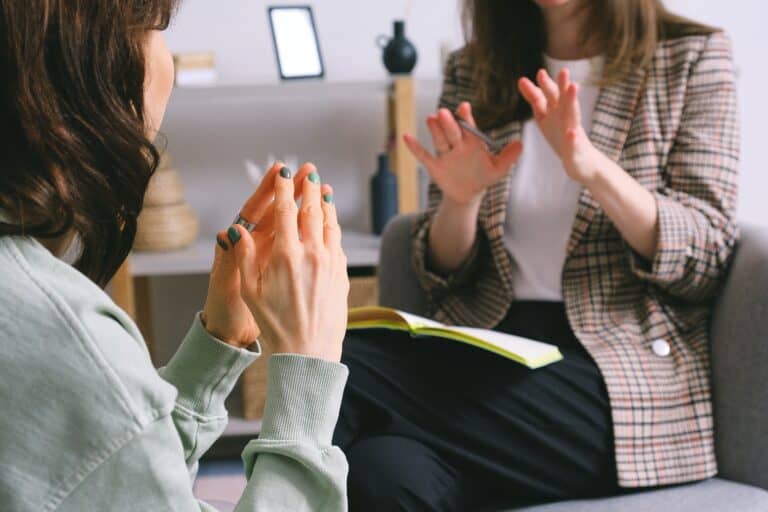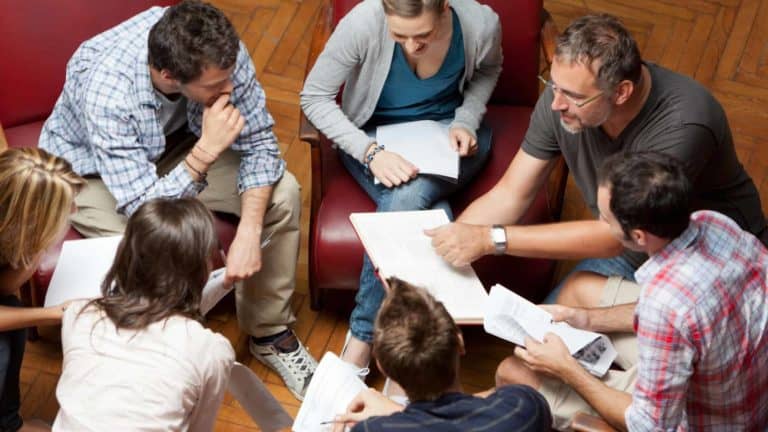R.E.A.L.® Trainer Spotlight: Sumner McCallie
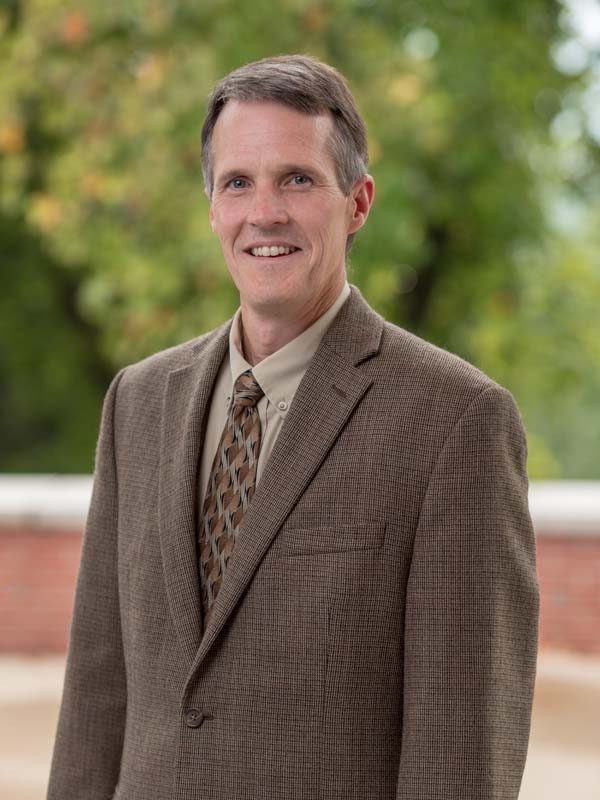
Name/Hometown: Sumner McCallie, Chattanooga, TN, McCallie School
Current Role and School: Dean of Faculty & Curriculum at McCallie School in Chattanooga, TN.
How did you learn about R.E.A.L.®? [R.E.A.L.® Founder] Liza Garonzik had presented at a conference, and our Middle School Principal came back and said, “you’ve got to be connected with her. She has a great idea about how to get students to be more engaged, how to connect, and how to feel more connected in discussions.” It was pretty obvious after going through that training that yes, absolutely – R.E.A.L.® has figured it out.
Thinking back to your first R.E.A.L.® Discussion, how did that go? What were you nervous about? Did anything surprise you?
There’s a lot to think about on the front end. And the sense is, particularly as a teacher, you’re trying to cover a lot of things. You’re trying to make sure everything goes well, and there’s a lot of thought that goes into the program. My initial nervousness centered around trying to hold all that in my head while making sure I could get out of the way so students could do the discussion themselves.
What’s fun about R.E.AL.® is you fairly quickly realize you don’t have to do that. You can focus on individual pieces, and everything comes together over time.
One thing that surprised me was that R.E.A.L.® has thought so deeply about its program. A lot of the routines are, in fact, needed – and they are picked up even by seniors whom you might worry will reject it. That’s pretty significant.
One thing that surprised me was that R.E.A.L.® has thought so deeply about its program. A lot of the routines are, in fact, needed – and they are picked up even by seniors whom you might worry will reject it. That’s pretty significant.
Sumner Mccallie
The difference between the first time I ran a R.E.A.L.® discussion and, say, the fourth time I ran it was very much an internal change. I was still focused on me – and on wondering if I was managing it right, hoping that I’d designed it correctly. The more you do it, though, the more you realize you can adapt it to your own course.
For me, the most important piece of R.E.A.L.® is ensuring there’s a debrief that allows kids to focus on the skill of discussion. If you have that debrief, then the next discussion is infinitely better. That was a surprise for me: realizing that it’s worth going through all the R.E.A.L.® steps and processes to get to the end, because it’s a really well thought-out program.
Why did you join R.E.A.L.® as a trainer?
I deeply appreciate that Liza and Emily reached out to ask if I would be interested in joining as a trainer. I had already started talking to teachers at my school, because R.E.A.L.® is so useful.
When you capture something in teaching that can be shared with a number of teachers and transform student experiences, that’s worth sharing.
Sumner Mccallie
When you capture something in teaching that can be shared with a number of teachers and transform student experiences, that’s worth sharing. Also, being a R.E.A.L.® trainer is a good reminder of the details of the program. Whenever you teach something, you do it better yourself. And finally, it’s so much fun to train alongside Emily and Liza. They are such a wealth of information. They really understand teaching, and they also understand discussion. I’ve learned something every single time I do a training session with them.
R.E.A.L.® is a truly transformational thing that can happen in a classroom, so I was absolutely happy to join in on that.
What is your favorite part of the workshops you lead?
The most fun part of it for me is the personality discussion. Watching that is just delightful, because I love those types of conversations. I love when people can begin to let their guard down. You can then get a sense of what their classroom is like, and who they really are. That’s really fun to see.
The second part that’s really fun but is a little more abstract is asking people to think deeply about how discussions work. Much like students, I don’t necessarily know that teachers have thought deeply about that either. I think most students and even teachers tend to say: this is something else to try. It’s another tool to use.
It’s so much more than that. What R.E.A.L.® is allowing teachers to do is to begin to realize they can play around with something that serves a specific purpose, to draw content out, to draw students out, to draw those connections. In the training workshops, you can see them begin to understand why discussions are important, how people come to discussions, why discussions are in fact really critical, and how to plan for them and actually do them the right way.
Why discussions, why now, and how does my class relate to the larger world – those are the types of questions that are so critical. It goes so far beyond content, and it’s really fun to watch teachers recognize that they actually have a lot more they can use for discussions.
Why discussions, why now, and how does my class relate to the larger world – those are the types of questions that are so critical. It goes so far beyond content, and it’s really fun to watch teachers recognize that they actually have a lot more they can use for discussions.
Sumner Mccallie
It’s a great way for teachers to start to understand what discussion can do in their classrooms.
That’s exactly right. Some of the teachers that went through the training earlier this year have already called me to tell me how phenomenal this training was, which is great. I have one teacher who’s found an extra level of energy and excitement about what’s happening in his class. It’s no longer just about getting across content that will be important for students to learn. It’s doing something that goes much deeper and builds the relationship with students even further.
When it comes to discussion in general, what do you see as the power of discussion in today’s world for students, teachers, and parents?
There may be two levels. One: if we can help students understand the logistics of how discussions work, they can become more part of a community, because they can enter into discussions even if the other people in the discussion don’t understand the dynamics. Secondly, they can actually manipulate – and I mean that in the best way – and play around with a discussion to get the best out of it. That means they can recognize people’s particular strengths. They can think about how people are approaching discussion. They can learn how to respond respectfully, even when they don’t agree with a point.
So, part of it is the students’ sense of how they can contribute and how they can create space for others to contribute. I think that’s absolutely vital, on a personal basis, to understand a place in our world.
If you take time to think about the logistics of discussion, I think it makes a difference in a larger sense in terms of well-being, belonging, and digital citizenship. It feels like we’re in a country that desperately needs conversation – not necessarily agreement, but an ability to converse with each other without demonizing the other side. If we can develop that type of skill, that makes a big difference in addressing issues and raising ideas without getting stuck on the level of ‘you don’t agree with me – that’s it, forget it.’
On the digital side, one thing that happens is people can sort of shut off things they don’t agree with by unliking, unfollowing, and disconnecting. That leaves people with an idea that they can deal with life simply because they’ve eliminated all conflict as opposed to working through it.
We have so many pressures in our society today that are allowing us to become more isolated, either physically or mentally, and discussion has got to be a key in terms of reversing that. But there have to be logistics to that. You can’t just say, “ok, get together and talk correctly.” There has to be a process to do that.
We have so many pressures in our society today that are allowing us to become more isolated, either physically or mentally, and discussion has got to be a key in terms of reversing that. But there have to be logistics to that. You can’t just say, “ok, get together and talk correctly.” There has to be a process to do that.
Sumner Mccallie
What in your own background has helped you realize the power of your voice and discussion?
I’m sure part of it comes from having watched my mom and dad. Dad was a diplomat, so the idea of exchanging concepts and getting together with people that you agreed with and didn’t agree with, and trying to convince folks of certain things, and trying to listen to what their needs were, and going into a discussion where there wasn’t a predetermined outcome already – like we teachers do – that sort of opened the door. Going into a conversation excited about where it could go, as opposed to feeling like “I’ve got to get it somewhere” I think comes from watching him.
My mom is an unbelievable listener – one of the best I’ve ever seen. I’ll find myself thinking, “I didn’t expect to be talking about that.” And yet, she didn’t push, she just created space.
I think these two people are incredibly important for me. And there was a summer camp I went to for years, which was so focused on relationships and people. There, relationships were foundational – and if you got them right, then all the other skills and activities were even more fun, because you were doing them with people that you really enjoyed being with. I think that formed a lot of how I ran boarding life here at McCallie, and it sort of created that philosophy of what I’m trying to do in my class.
So I think my interest in discussion comes from my family background, my personal experience, and my having found a community environment where people are valued, where what they have to say is valued, and where going out of your way to listen to them is valued.
As a R.E.A.L.® Trainer, you’re working in adult learning, whereas at McCallie you obviously work with young people. Has that been a big transition? Have you learned anything about your teaching practice?
That’s a great question. But no, it’s not so much of a difference. For the past 20 years, I’ve been working with faculty. I’ve been working with people who are deeply committed to students, deeply committed to learning, and deeply committed to their profession. That’s part of how they get their sense of purpose. The idea of guiding a group of people who share that type of commitment is not new. I’ve been doing that for most of my career.
What’s been useful to watch is how we all, even as adults, still have insecurities. We still come to spaces wanting to be connected, wanting to be heard, and wanting to be seen again. I think that’s why R.E.A.L.® is so useful – because it addresses those things directly. That’s true with both students and faculty. Some of the processes and metaphors I use are different, because if I’m talking to a faculty member who has kids themselves, that’s very different than an 18-year-old who has no idea about that. But there are similarities, regardless of age, that are worth paying attention to. The way they express themselves, the way they emerge might be a little different. But if you’re looking for the deeper part of who we are as human beings and start there, that’s going to be pretty similar.
Who inspires you?
Oh, people like you all. That’s easy. Folks who have a passion for people and who have decided that people are worth going out of their way for – people who are other-centered. People who have passions for things that will make others’ lives better in real ways, and they’re doing something about it. Those are the people that inspire me.
Last question: do you have any reading recommendations?
Oh yeah, absolutely. Fredrik Backman is an unbelievable author. He wrote A Man Called Ove, which is fun, and then Anxious People, and his Beartown Trilog is stunning. These are not discussion-based at all – they’re just reading recommendations in general.
A Gentleman in Moscow by Amor Towles is truly one of my favorite books. And his new short story collection is really well done.
I’ve been recommending Jeannette Walls’ The Glass Castle. There’s a really cool series the Library of Congress has developed recently, which are mysteries that were significant for the genre. So, the first courtroom drama, etc. That’s kind of fun.
Thank you, Sumner, for chatting with us and for all the work you do on behalf of R.E.A.L.®!
